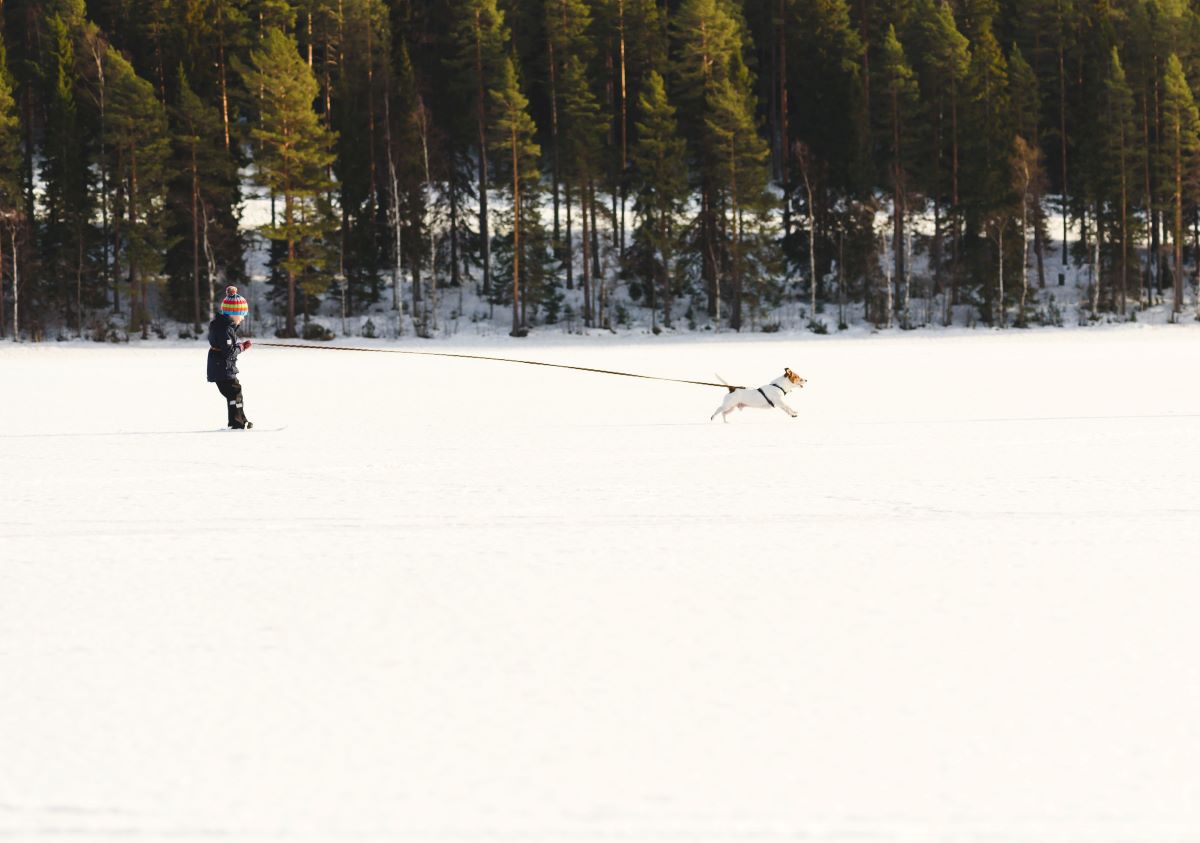Use Nordic concepts to bolster wellness, productivity and engagement amid the ongoing pandemic
Energize your dispersed workforce—and yourself—with fresh ideas and Scandinavian traditions.

2021 is the year of prioritizing health and well-being.
2020, which was not unlike a pressure washer filled with terrible news and pestilence, stripped the veneer off of our lives and livelihoods. As a result, we’re all a bit rawer—and perhaps realer—than we used to be. That’s not all bad.
Hard times, adversity and struggling have a strengthening effect. Suffering tends to spark adaptation and sharpen focus—and sometime force us to change our lifestyles. Or perhaps incorporate new traditions and habits to cope with all the change.
As I spent a bit of time over the weekend considering how best to cope with all this uncertainty, I landed on a BBC article about the Swedish concept of lillördag, or a “Little Saturday.” That piece led me down a kaninhul of Scandinavian tips for better living.
As we continue to navigate hardship together, here are a few fresh (and frozen) ideas to stay grounded, resilient, balanced and hopeful.
Get on the Nordic track
Nordic countries typically dominate the top spots of the World Happiness Report. Why is that? What else can we learn from these folks aside from blowing off steam on Wednesdays?
You can certainly adopt your own personal, pandemic-era spin on the lillördag concept, which the BBC describes as a “Nordic cultural tradition in which Wednesdays are regarded as opportunities for little weekend-like celebrations … Historically, it has since been put into motion as a kind of little holiday in the middle of the week when people need time to blow off steam.” These days, it could be a Zoom poker night, painting or perhaps a bit of socially-distanced power-walking.
Malin Teles, a Swedish communicator now based in Brazil, says most Swedes are familiar with the lillördag concept, though it’s not any sort of official country policy. She says she doesn’t typically schedule a lillördag, “But I do try to incorporate the overall idea of not waiting until the weekend to have fun,” she says.
Teles continues: “I think it’s a healthy thing to enjoy every day, no matter the day of the week. This, for me, means making room for fun activities also during the week. Both at work with colleagues and in a private setting. Not necessarily involving alcohol as Lillordag often does, but by eating out, going to the cinema [pre-pandemic, of course], or doing a team outing with your colleagues.”
If a lillördag seems like too much effort, might I interest you in a fika? Teles says fika means taking a break (at work or home) to have a coffee or tea and, often, a sugary snack. “At work it’s almost a sacred ritual,” she says, “People stop for a break in the morning and in the afternoon to have fika together.” You can go ahead and plug that into your calendar.
Striking a healthier balance
Whether you’re a bundled-up Pennsylvanian—or sun-basking on the Mediterranean— you might also try these Scandinavian keys to achieving a healthier work/life balance:
- Friluftsliv. This Norwegian custom means “life in fresh air.” Getting outside and exercising is a great way to beat back the winter blues and combat cold-weather anxiety, so you might also try the related concepts of gökatta (which essentially means “rising at dawn in order to go listen to the birds sing”) and the delightful Danish notion of hygge, or embracing coziness during winter.
- Lagom. Life is all about balance, right? Lagom, according to Health.com, “translates to ‘not too little, not too much’” or ‘just right’—and in Sweden it represents the art of living a balanced, slower, fuss-free life.’”
- Working less. As CNBC notes, a full-time workweek in Denmark does not typically exceed 37 hours.The average American clocks more than 44 hours per week, which is bad. Even worse, we often glamorize our “hustle” and overwork. Meanwhile, the Danes view extra work as a “weakness,” or as a sign that you “can’t get work done in the allotted work time.”
- Offering flexibility. Ninety-two percent of Finnish companies allow workers to adapt their hours to accommodate their personal lives and schedules. The country has also just enacted a new Working Hours Act, which gives workers the right to dictate where, when and how they choose to get their job done for at least half of their working hours.
- Supporting working parents. How does 14 months’ worth of paid leave sound, new parent? Finland allots 164 paid days for moms and dads. Meanwhile, Swedish parents are entitled to 240 days each. Sound crazy? How does anyone get any work done? Sweden justifies it thusly: “Offering paid parental leave is one way to enable parents to combine work with family life. Having a child doesn’t mean the end of a career, merely a pause. And it’s not just about equality—on a national level it’s also about economy, about maximizing the potential of the workforce and, by extension, increasing the country’s growth.”
To distill these concepts into one sweet lingonberry of advice: relax. Take time to enjoy yourself and your surroundings. Be generous to yourself and to others. Work is important, but it’s not everything. Think of it as icing on the kringle of your life. Get outside, work fewer hours, and take more breaks.
Life’s too short to neglect your daily fika.







